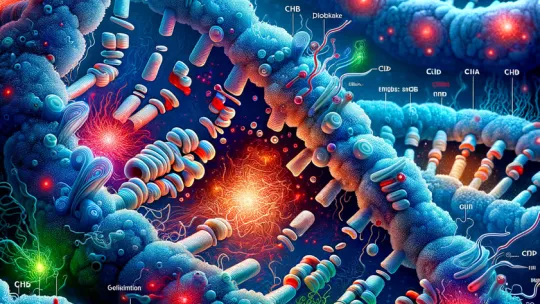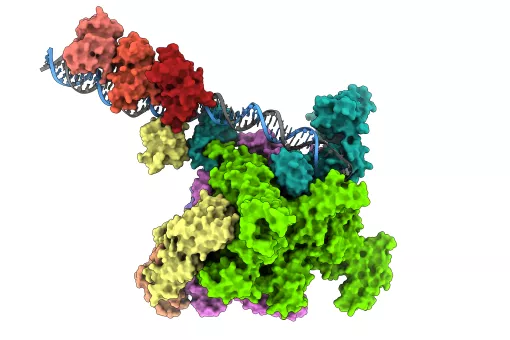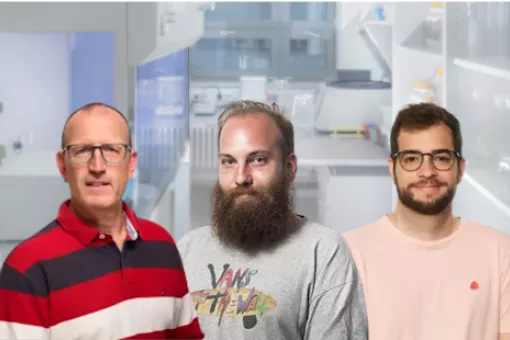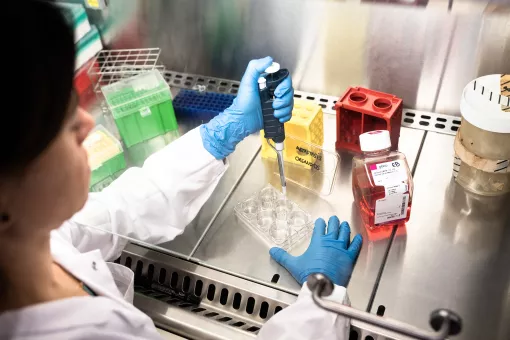Images
- Researchers at IRB Barcelona report mutation rate variation across the human genome.
- Regions with low mutation rates correlate with hypomethylation (low methylation levels), a way cells control which genes are turned on or off.
- Published in Nucleic Acids Research, the study sheds light on the accumulation of somatic mutations through cancer and ageing, providing valuable knowledge.
Mutations are the changes in the DNA that gradually occur in human cells as they replicate, and the organism grows and ages. Some of these changes, particularly when they occur in genes, can be instrumental during the development of cancer. Therefore, it is important to differentiate changes that have the potential of being relevant for the disease against others that will accumulate without consequence. The understanding and characterization of the harmless changes is a key methodology used to detect other changes that differ from them and can lead to a better identification of those that are harmful.
In a study published in Nucleic Acids Research, ICREA researcher Dr. Fran Supek and Dr. David Mas Ponte, both at IRB Barcelona, have uncovered variations of mutation rates at a fine scale within genes. Through this study, they have identified “coldspots”, where the mutation burden is lower than usual, and have linked them with low DNA methylation, a common epigenetic mark, thereby establishing a direct mechanism linked to their regulation.
"Understanding the distribution of mutation rates could facilitate the development of targeted therapies to protect specific genomic regions, or diagnostic tools to monitor these regions. Such therapies could help prevent the accumulation of mutations that drive cancer development or progression," says Dr. Supek.
These discoveries stemmed from performing data analysis on mutations found in cancer cells and healthy tissues, together with DNA methylation and other epigenetic datasets.
Mutations and epigenetics
Epigenetics encompasses chemical modifications on both DNA and the proteins that coat them, such as histones, and regulates gene expression without changing the DNA sequence. DNA methylation is a natural process that can influence how active a gene is, it’s one of the most common epigenetic alterations and is particularly important for active genes as they are normally expressed in the tumour. Contrary to other histone modifications, which occur across large sections of the gene, patterns of DNA methylation vary across short segments of the gene and thus are additionally relevant when quantifying the mutation rate variability across the genome and adjacent regulatory regions.
"This study enhances our understanding of factors contributing to uneven mutation distribution within genes, offering valuable insights into mutagenesis mechanisms and cancer evolution," Dr. Supek concludes.
This research project received funding from the European Research Council Consolidator Grant STRUCTOMATIC and the Spanish Ministry of Science and Innovation through a “Plan Nacional” grant and the Severo Ochoa Excellence Programme.
Related article:
Mutation rate heterogeneity at the sub-gene scale due to local DNA hypomethylation
David Mas-Ponte and Fran Supek
Nucleic Acids Research (2024) DOI: 10.1093/nar/gkae252
About IRB Barcelona
The Institute for Research in Biomedicine (IRB Barcelona) pursues a society free of disease. To this end, it conducts multidisciplinary research of excellence to cure cancer and other diseases linked to ageing. It establishes technology transfer agreements with the pharmaceutical industry and major hospitals to bring research results closer to society, and organises a range of science outreach activities to engage the public in an open dialogue. IRB Barcelona is an international centre that hosts 400 researchers and more than 30 nationalities. Recognised as a Severo Ochoa Centre of Excellence since 2011, IRB Barcelona is a CERCA centre and member of the Barcelona Institute of Science and Technology (BIST).







